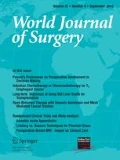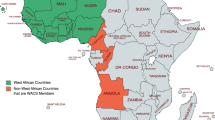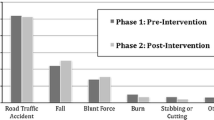Abstract
Background
Trained health-care personnel are essential for improved outcomes for injured and critically ill patients. The highest injury-related mortality is seen in sub-Saharan Africa, where there is a paucity of skilled personnel. Therefore, the College of Surgeons of East, Central, and Southern Africa (COSECSA) along with Emory University provided an acute trauma care (ATC) and fundamental critical care support course (FCCS). This study evaluates the impact of American-derived courses on the knowledge and confidence of participants from resource-limited countries.
Methods
Courses were held in Lusaka, Zambia, and Nakuru, Kenya. Participants were COSECSA trainees and personnel from local institutions. The evaluation used a pre-/postcourse multiple-choice exam for knowledge acquisition and a pre-/postcourse questionnaire for confidence assessment. Confidence was measured using a 5-point Likert score, with 5 being the highest level of confidence. Confidence or self-reported efficacy is correlated with increased performance of new skills.
Results
There were 75 participants (median age = 31 years, 67% male). Three-quarters of the participants reported no prior specific training in either trauma or critical care. Knowledge increased from an average of 51 to 63.3% (p = 0.002) overall, with a 21.7% gain for those who scored in the lowest quartile. Confidence increased from pre- to postcourse on all measures tested: 22 clinical situations (10 trauma, 9 critical care, 3 either) and 15 procedures (p < 0.001 for all measures both individually and aggregated, Wilcoxon rank sum test). The strongest absolute increase in confidence, as well as the largest number of participants who reported any increase, were all in the procedures of cricothyroidotomy [median: pre = 3 (IQR: 2-3) to post = 5 (IQR: 4-5)], DPL [median: pre = 3 (IQR: 2-4) to post = 5 (IQR: 4-5)], and needle decompression [median: pre = 3 (IQR: 3-4) to post = 5 (IQR: 5-5)].
Conclusions
Participants from resource-limited countries benefit from ATC/FCCS courses as demonstrated by increased knowledge and confidence across all topics presented. However, the strongest increase in confidence was in performing life-saving procedures. Therefore, future courses should emphasize essential procedures, reduce didactics, and link knowledge acquisition to skill-based teaching.



Similar content being viewed by others
References
Peden M, McGee K, Sharma G (2002) The injury chart book: a graphical overview of the global burden of injuries. World Health Organization, Geneva
World Health Organization (2005) WHO Report: WHO Meeting Towards a Global Initiative for Emergency and Essential Surgical Care (GIEESC), 8–9 December 2005, Executive Board Room, WHO Clinical Procedures Unit, Department of Essential Health Technologies. Geneva: WHO
Dunser MW, Baelani I, Ganold L (2006) A review and analysis of intensive care medicine in the least developed countries. Crit Care Med 34(4):1234–1242
Baker T (2009) Critical care in low-income countries. Trop Med Int Health 14(2):143–148
Oji A (1986) Intensive care in a developing country: a review of the first 100 cases. Ann R Coll Surg Engl 68(3):122–124
MacLeod J, Lynn M, McKenney M et al (2004) Predictors of mortality in trauma patients. Am Surg 7(9):805–810
MacLeod J, Kobusingye O, Frost C et al (2003) A comparison of the Kampala Trauma Score (KTS) with the Revised Trauma Score (RTS) and Injury Severity Score (ISS) in a Ugandan Trauma Registry: is equal performance achieved with fewer resources? Eur J Trauma 29(6):392–398
World Health Organization, The World Health Report 2006—Working Together for Health. Available at http://www.who.int/whr/2006/en/. Accessed 18 December 2009
Bergman S, Deckelbaum D, Lett R et al (2008) Assessing the impact of the trauma team training program in Tanzania. J Trauma 65(4):879–883
MacLeod JB, Gravelin S, Jones T et al (2009) Assessment of acute trauma care training in Kenya. Am Surg 75(111):1118–1123
Aboutanos MB, Rodas EB, Aboutanos SZ et al (1993) Trauma education and care in the jungle of Ecuador, where there is no advanced trauma life support. J Trauma 34(6):890–898
Tchorz KM, Thaomas N, Jesudassan S et al (2007) Teaching trauma care in India: an educational pilot study from Bangalore. J Surg Res 142(2):373–377
Mock C, Kobusingye O, Joshipura M et al (2005) Strengthening trauma and critical care globally. Curr Opin Crit Care 11(6):568–575
MacLeod JB, Jones T, Chupp M, Poenaru D, Feliciano DV (2007) Assessment of the Fundamental Critical Care Course in Kenya: knowledge, attitude, and practice. J Surg Res 137(2):236
Pyrczak F (1973) Validity of the discrimination index as a measure of item quality. J Educ Meas 10(3):227–231
Sim SM, Rasiah RI (2006) Relationship between item difficulty and discrimination indices in true/false-type multiple choice questions of a para-clinical multidisciplinary paper. Ann Acad Med Singapore 35:67–71
Bandura A (1977) Self efficacy. Toward a unifying theory of behavior change. Psychol Rev 84:191–215
Bandura A, Adams NE, Beyer J (1977) Cognitive processes mediating behavioral change. J Pers Soc Psychol 35(3):125–139
Kaufman DM (2003) Applying educational theory in practice. BMJ 326:213–216
Acknowledgments
The Society of Critical Care Medicine through their Critical Care Education and Research Foundation (CCERF) provided the instructors’ material for the course content, the textbooks, and the shipping for the critical care component of the curriculum of these courses. The authors thank Dr. Christine Keyes from the Department of Emergency Medicine, Emory University, who assisted substantially with course implementation, served as one of the course faculty, and assisted with data collection. This work was supported in part by a Critical Care Education and Research Foundation Grant from the Society of Critical Care Medicine.
Author information
Authors and Affiliations
Corresponding author
Rights and permissions
About this article
Cite this article
MacLeod, J.B.A., Okech, M., Labib, M. et al. Evaluation of Trauma and Critical Care Training Courses on the Knowledge and Confidence of Participants in Kenya and Zambia. World J Surg 35, 9–16 (2011). https://doi.org/10.1007/s00268-010-0810-z
Published:
Issue Date:
DOI: https://doi.org/10.1007/s00268-010-0810-z




